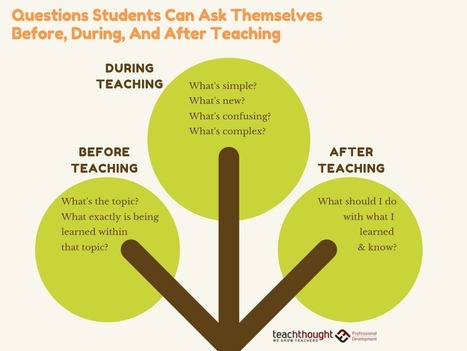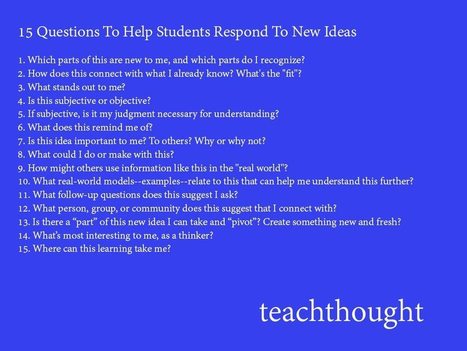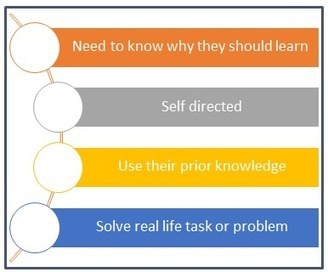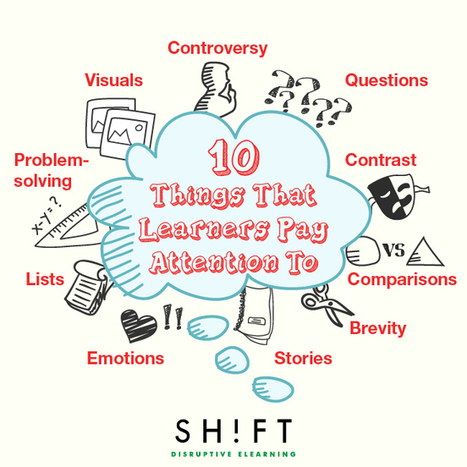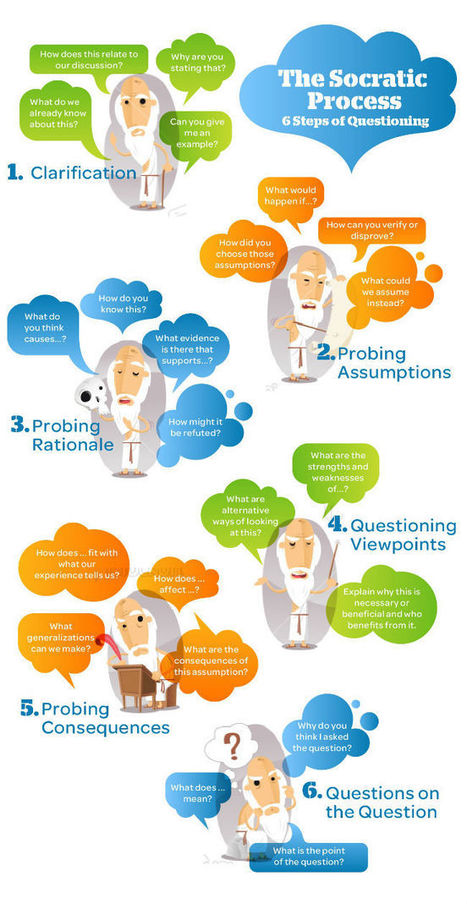Are there questions students can ask themselves while you’re teaching? Questions that can guide and support their own thinking and awareness before, during, and after your teaching?
Of course, this assumes you’re ‘teaching’ a traditional ‘lesson’ with a learning objective or target. If not, this may not be very helpful. This is also a list that, like many I’ve done, could get unnecessarily long fast. In some ways, this functions something like a KWL chart. The idea here, however, is less about brainstorming before or after a lesson, but rather having questions useful to guide the student so they can know what to expect.
A few tips to get started:
Via John Evans



 Your new post is loading...
Your new post is loading...

